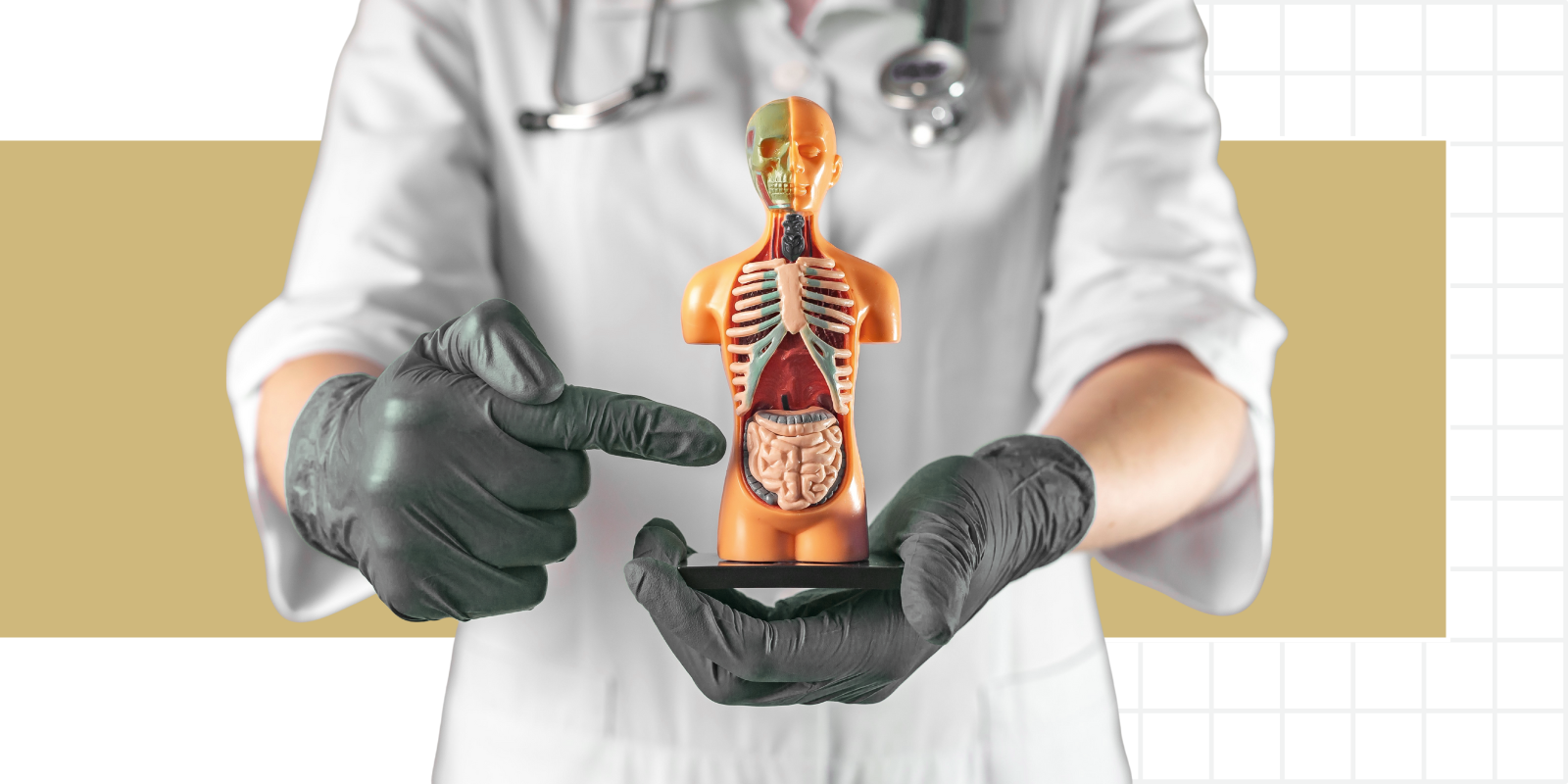More than a stomachache
A trip to Jamaica means white sandy beaches, warm waters, and a perfect get away for most people. But for Stephen Estrada, a colon cancer patient at the University of Colorado Cancer Center, his trip to the island turned into a nightmare.
“I remember on the last day there I was supposed to go on an excursion with my family but I was in so much pain that all I could do was lay in bed at the hotel,” says Stephen. “The plane ride home was even worse. I had to pace the aisle to try and escape the pain.”
A Dallas transplant, Stephen and his partner Kenley, moved to Colorado eight years ago and have not looked back since.
“We wanted something new and Kenley had lived in Colorado before,” says Stephen. “It seemed like the perfect place for us.”
When Stephen started having unusual abdominal pain after eating in 2013 he did not think much of it.
“Stomach problems are so common these days that I was not too worried,” he explains. “I started changing parts of my diet and exercising more to try and stop the pain. At the time I thought I might have celiac disease or something.”
But that all changed after their vacation to Jamaica.
“On the flight home I knew something was wrong,” Stephen says.
However, after many trips to emergency rooms where he was told the pain was caused by constipation, gas, or other typical gastrointestinal problems, Stephen grew frustrated and the pain continued to get worse. He eventually went to his primary care doctor to see if she could do anything. At the appointment it was discovered that lymph nodes in his back were the size of peaches.
“I could tell by the look on her face that something was very wrong,” says Stephen.
He was immediately sent for a CT scan and tumors were found in his colon and mesentery, a fold of tissue that anchors the small intestines to the back of the abdominal wall. Four days later he had surgery to remove the tumor in his colon, but they were unable to remove the one located in the mesentery due to a fear that major organs would be affected.
After the surgery Stephen went in for genetic testing because, at only 28 years old, no one believed that the tumors could be cancer.
“I was considered too young to have colon cancer,” he explains. “But when the test came back they found a mutation in my MLHI gene, which indicated Lynch syndrome.”
Lynch syndrome is a hereditary disease that can cause many types of cancer but colon cancer is the most prevalent.
“We started to look into my family history on my mother’s side because my grandmother had colon cancer at 35,” Stephen says. “They wanted to have my mother tested for the mutation as well.”
When her test came back positive she was sent in for a CT scan. She also had colon cancer but it was found early, stage II.
“She did not have any symptoms at all,” says Stephen. “They were able to treat her cancer and we think about it as me saving her life now.”
Due to his mutation and his mother’s diagnosis, Stephen’s tumor samples were sent in for testing.
“It was June 2014 when I was diagnosed. I went to the follow up appointment by myself because I really did not expect to hear ‘cancer’,” explains Stephen. “When the doctor told me he believed I had stage IV colon cancer it was a complete shock.”
Stephen called Kenley from the doctor’s office to tell him the news.
“At first I did not believe it,” says Kenley. “Once I got off the phone with him his voice just kept repeating in my head over and over. That was when it hit me and all I could think is ‘why is this happening to us?’”
Stephen started his care at another local cancer center. He went through 12 rounds of folfox to try and shrink the tumor. If the tumor shrank enough he would be able to do a nanoknife procedure to destroy it.
“To the surprise of everyone the tumor did shrink and I was able to have the procedure done,” says Stephen. “However the surgery, which is supposed to be non-invasive, ended up to be very difficult.”
During the procedure doctors discovered that the tumor was attached to the gallbladder and small intestines. Because of this the surgery changed to a small intestinal resection, a mesentery resection, an intestinal rerouting, a stomach bypass, and gallbladder removal. Recovery from the surgery also nearly took Stephen’s life when a stich came out which caused massive internal bleeding two weeks after the surgery.
“At the hospital they had me drink a colonoscopy prep which somehow stopped the bleeding,” says Stephen. “Needless to say recovery was hell.”
A Saving Grace
The plan after his surgery was to go on maintenance chemotherapy. However after he did some research on his oncologist Stephen found that she did not specialize in Lynch syndrome.
“I felt that to save my own life I needed to find an oncologist that did,” he says. “That’s when I remembered Dr. Messersmith’s card in my wallet.”
Before his nanoknife procedure Stephen went to a Christmas party hosted by a local support group called Colontown.
“At the party a woman gave me Dr. Messersmith’s card. She told me that he was the best of the best and if I wanted to get through this I had to see him,” he says. “I put the card in my wallet and essentially forgot about it because I was so busy with my current treatment plan.”
Stephen made an appointment with Wells Messersmith, MD, CU Cancer Center investigator.
“At the time my cancer was supposed to be in remission after the surgery, so when we met with Dr. Messersmith for the first time it was essentially to start talking about future care plans when they were needed,” says Stephen. “But a week after I met with him I started having pain right where my tumor is.”
A CT scan revealed that the surgery had not been successful and the tumor was still active and growing. Messersmith recommended that Stephen start a phase I immunotherapy clinical trial. The trial consists of Avastin and a new drug.
“I was scared to sign up at first,” say Stephen. “But Dr. Messersmith reached out to me and said that if he were in my shoes participating in the trial is exactly what he would do. That was enough for me.”
Stephen started the trial and the results were astounding.
“Almost immediately I started gaining weight, my hair came back thicker and faster, and I felt good every day,” he says. “The treatments are also a breeze compared to chemotherapy.”
On the trial Stephen experience initial shrinkage of the tumor and is now considered stable.
“This is a treatment that I will likely be on for a long time,” he says. “Even if something goes wrong there are other immunotherapy drugs that I could have access to pretty easily. It is a comforting feeling.”
Planning for the Future
The clinical trial that Stephen is on has improved his quality of life significantly.
“We have a plan now which allows me to live my life more,” he says. “We can book a trip a year in advance if we want to. I have been able to go back to work. It really is amazing.”
Stephen is not only a patient but also highly involved in the colon cancer support community. He and Kenley both are members of the support group Colontown.
“Joining Colontown has been so helpful to both of us as a patient and caregiver,” says Kenley. “I am able to talk with other caregivers about their experiences and that helps me continue my support of Stephen. If there is one piece of advice I can give people that are going through a similar experience it would be to find a good support group.”
Stephen is also a huge advocate of genetic testing and personal education.
“Knowing your cancer’s profile may save your life,” he says. “It also can give you the ability to look for clinical trials you may be suitable for. Don’t think that a clinical trial is the last option. Educating yourself about your cancer is so important.“



